 Every time a truck driver gets into his vehicle, he’s facing the possibility of an accident, and accidents that involve big rigs have a higher probability of causing severe injury, which of course impacts the cost of trucking insurance.
Every time a truck driver gets into his vehicle, he’s facing the possibility of an accident, and accidents that involve big rigs have a higher probability of causing severe injury, which of course impacts the cost of trucking insurance.
It’s no surprise that the transportation industry has the highest incidence of fatal work injuries. According to the U.S. Department of Labor (DOL), there were 1,388 transportation and material moving workers fatally injured at work in 2016. That number accounted for 40% of all reported on-the-job fatalities.
Increasing safety and minimizing accidents is one of your best defenses against rising commercial vehicle insurance costs and the ever-increasing shortage of truck drivers.
Accidents and Driver Error
Most accidents that involve big rigs are due to driver error including lack of poor judgment, speeding, using a mobile device, not being aware of blind spots, driving under the influence, and driving while fatigued. The Federal Motor Carrier Safety Administration (FMCSA) states, “Even the most well-trained, safety-conscious commercial motor vehicle (CMV) driver is at risk of engaging in driving behaviors that could lead to a crash on today’s crowded highways.”
Understanding what causes truck accidents and how to avoid them is the first step. Providing ongoing safety training for drivers and enforcing a culture of safety is the next step. It may seem like a lot of effort up-front, but the payoff will be far-reaching and long-term.
Here are 3 tips for safe driving leading to lower truck insurance costs:
1 - Stay Sharp/Pay Attention
Truck drivers need to pay attention to their surroundings: unexpected road conditions, distracted drivers, and drivers who don’t understand how commercial vehicles operate. FMCSA suggests scanning ahead about a quarter of a mile on interstates and one or two blocks in cities and checking the mirrors every 8-10 seconds to be aware of vehicles entering blind spots.
There is a good reason why it is illegal for commercial drivers to text while driving. According to FMCSA, “The odds of being involved in a crash, near-crash, or unintentional lane deviation are 23.2 times greater for truck and bus drivers who are texting while driving.”
Other deadly distractions include eating, drinking, map reading, or any activity that takes your focus off the road. If you need to do something while you’re driving, get off at the next exit or pull over somewhere safe.
And do not get behind the wheel of a truck when you are tired, too ill to focus, or on medications that can make you drowsy. According to the Large Truck Crash Causation Study (LTCCS), 13 percent of commercial motor vehicle drivers were considered to be fatigued at the time of their crash, and a recent study showed that 17% were reported as having “over-the-counter drug use” when they were in an accident.
2 - Buckle Up
Buckle up; it’s the law. You’ve seen the signs, and that doesn’t just apply to passenger vehicles. FMCSAstates, “A CMV which has a seat belt assembly installed at the driver's seat shall not be driven unless the driver has properly restrained himself/herself with the seat belt assembly.” According to the FMCSA, “a safety belt is the most important in-cab safety device that will protect an occupant in the event of a sudden stop or crash.”
No matter how good of a driver you are or how uncomfortable you may think they are, you should wear a seat belt at all times.
3 - Know When to Slow Down
According to the Large Truck Crash Causation Study, 23% of large-truck crashes occur when drivers travel too fast for conditions. Some conditions to pay attention to are wet roads, reduced visibility, uneven roads, construction zones, curves, and intersections.
Drivers should reduce their speed by 1/3 on wet roads and by ½ or more on snow packed roads. Roads can be particularly slippery when it first begins to rain. Typically, manufacturers advise against using a retarder on wet or slippery roads.
There’s a reason there are reduced speed limits at curves: 40% of speeding-related fatalities occur on curves. Braking in a curve can cause the wheels to lock up and the vehicle to skid, and trucks entering a curve too quickly can lose control and roll over due to a truck’s high center of gravity.
Work zones present many hazards such as lane shifts, moving workers, and uneven road surfaces and are particularly dangerous areas for truckers. In 2014, 30% of fatal work zone crashes involved at least one large truck. Decrease your speed and get into the correct lane well ahead of work zones. Leave extra room between vehicles, obey all work zone signs, watch for road workers, and be prepared to slow down or stop suddenly.
More Safe Driving Tips for Truckers
Check out FMCSA’s website for more safe driving tips. It just might save a life and help you save on trucking insurance as a bonus!
How to Save Big On Truck Insurance
To learn more about saving on trucking insurance, give American Insuring Group a call at (800) 947-1270 or (610) 775-3848, or contact us online. We specialize in trucking insurance, and as independent agents, we will compare the cost and coverage of multiple insurance companies to ensure that you get the best price on reliable commercial vehicle insurance. Contact us today!



 The transition from paper logging to electronic logging devices (ELDs) that was mandated by the Motor Carrier Safety Administration (FMCSA) late last year has been anything but smooth for many drivers.
The transition from paper logging to electronic logging devices (ELDs) that was mandated by the Motor Carrier Safety Administration (FMCSA) late last year has been anything but smooth for many drivers. But where we really shine is
But where we really shine is 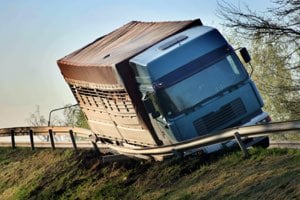 Buying or leasing a truck is a significant investment, and trucks are the lifeblood of truckers and trucking companies. For many truckers, the loss of their vehicle would mean the loss of their job and their income. For a large trucking company, the loss of a truck may not be as significant, but it would still negatively impact their business. That’s where
Buying or leasing a truck is a significant investment, and trucks are the lifeblood of truckers and trucking companies. For many truckers, the loss of their vehicle would mean the loss of their job and their income. For a large trucking company, the loss of a truck may not be as significant, but it would still negatively impact their business. That’s where  At American Insuring Group, we carefully analyze your needs and the risks associated with your trucking business. Then, we compare the cost of that coverage among many competing insurance companies to make certain that you receive a great deal. The result: quality insurance coverage for your needs at the best price.
At American Insuring Group, we carefully analyze your needs and the risks associated with your trucking business. Then, we compare the cost of that coverage among many competing insurance companies to make certain that you receive a great deal. The result: quality insurance coverage for your needs at the best price.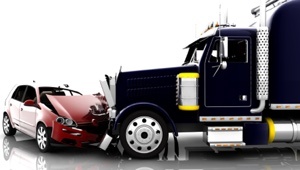 We probably don’t have to tell you that there is a shortage of drivers in the U.S., but have you ever considered how that shortage may affect the
We probably don’t have to tell you that there is a shortage of drivers in the U.S., but have you ever considered how that shortage may affect the 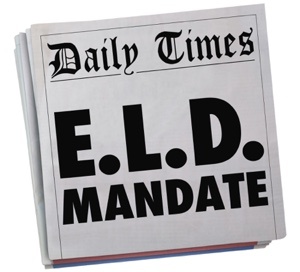 It’s a little early to know for sure how the ELD (Electronic Logging Device) mandate has affected businesses in the trucking industry, but so far, the response seems to be a mixed bag.
It’s a little early to know for sure how the ELD (Electronic Logging Device) mandate has affected businesses in the trucking industry, but so far, the response seems to be a mixed bag. To learn more about the SMARTHAUL program, or to start saving BIG on trucking insurance, give American Insuring Group a call at
To learn more about the SMARTHAUL program, or to start saving BIG on trucking insurance, give American Insuring Group a call at 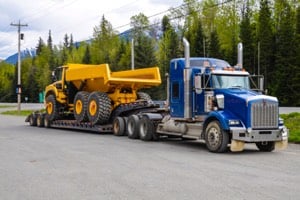 If you are one of the 12 million drivers registered to operate a CMV (Commercial Motor Vehicle) in the U.S., you play a big part in keeping our highways safe – even more so than drivers of passenger vehicles.
If you are one of the 12 million drivers registered to operate a CMV (Commercial Motor Vehicle) in the U.S., you play a big part in keeping our highways safe – even more so than drivers of passenger vehicles.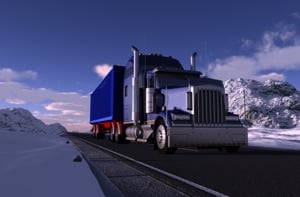 Driving a truck is challenging enough. Add some snow, sleet or freezing rain, and you have the perfect storm not only for your safety, but for your
Driving a truck is challenging enough. Add some snow, sleet or freezing rain, and you have the perfect storm not only for your safety, but for your 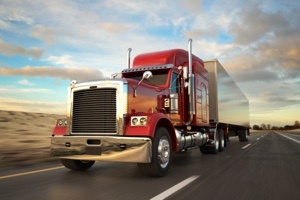 Nearly
Nearly 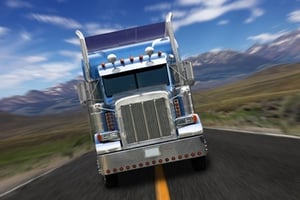 You have a great deal of power behind the wheel of a tractor-trailer. It's your responsibility to drive safely. As a bonus, if you do, then you'll also enjoy lower truck insurance costs.
You have a great deal of power behind the wheel of a tractor-trailer. It's your responsibility to drive safely. As a bonus, if you do, then you'll also enjoy lower truck insurance costs.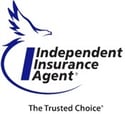 To learn more
To learn more 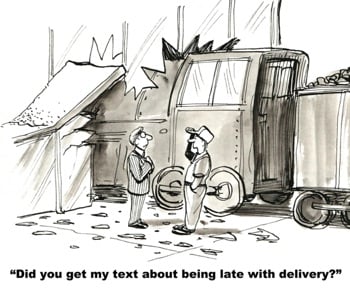 If you’re a CMV (Commercial Motor Vehicle) driver, you’ve probably heard of a little federal agency called the Federal Motor Carrier Safety Administration (FMCSA).
If you’re a CMV (Commercial Motor Vehicle) driver, you’ve probably heard of a little federal agency called the Federal Motor Carrier Safety Administration (FMCSA).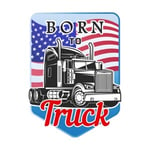 Give American Insuring Group a call at
Give American Insuring Group a call at 



